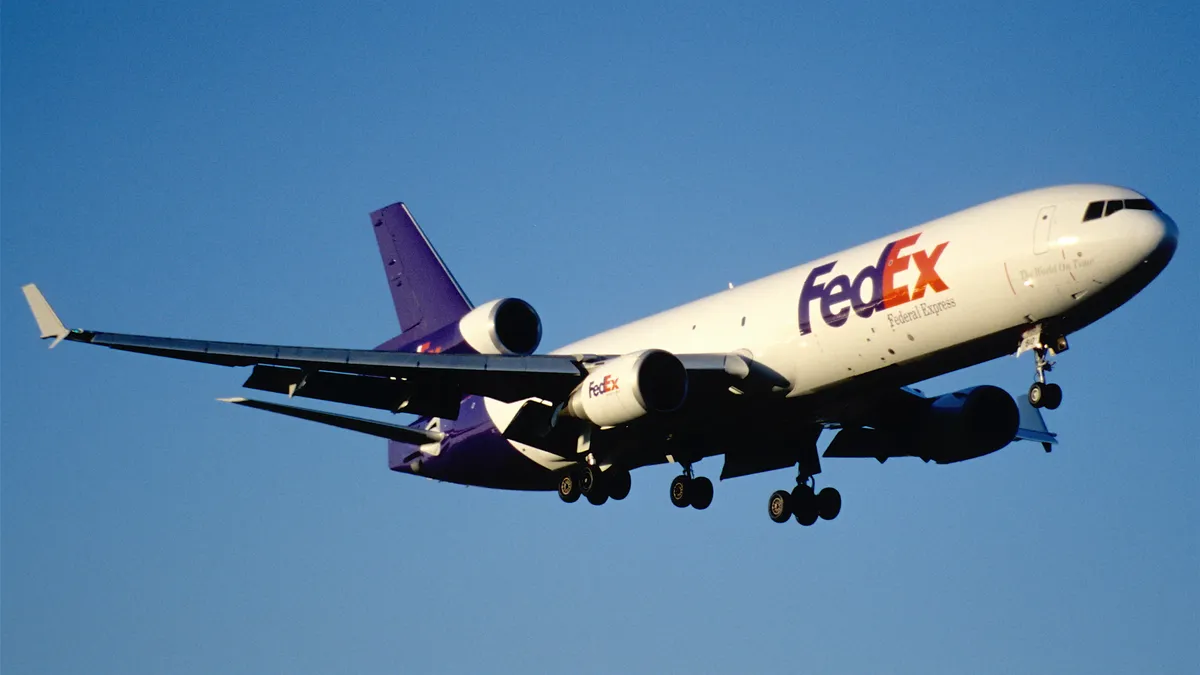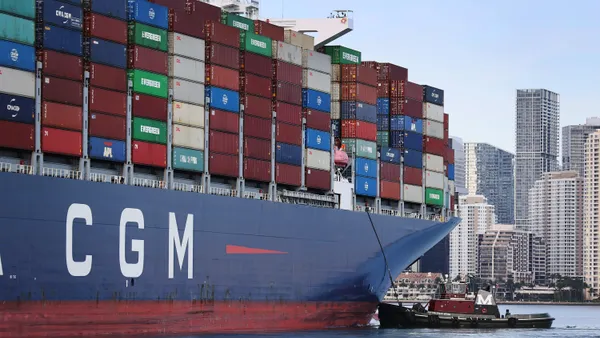UPDATE: June 25, 2019: On an earnings conference call Tuesday FedEx executives, including CEO Fred Smith, disputed the accuracy of The Wall Street Journal report regarding air freight pricing. Chief Marketing and Communications Officer Brie Carere said, "It is important to note that contrary to the erroneous and misinformed reporting in the Wall Street Journal on June 23, FedEx has made no recent pricing changes, no pricing changes to our strategy and we have certainly made no changes related to any one customer."
Dive Brief:
- FedEx is cutting prices on two-day Express shipping, matching two-day ground shipping prices, for some customers, in order to win over more e-commerce business from its main competitor UPS, according to a Wall Street Journal report citing "people familiar with the matter." FedEx told the Wall Street Journal the 3PL hasn't changed its pricing strategy. The carrier did not respond to Supply Chain Dive's request for comment before publication.
- The reported move comes amid a sharp, near 12% decline in per-package revenues for FedEx's Express business in the last year, as its air freight arm tries to adapt to a rapid increase in e-commerce parcels and retail expectations of two-day and one-day shipping.
- Rather than reduce the number of active planes in its fleet, the company is working to fill them, banking on e-commerce package volumes doubling to 100 million packages shipped per day by 2026, The Wall Street Journal reported.
Dive Insight:
After announcing its split from Amazon earlier this month, FedEx has available air freight capacity to fill.
In general, the challenge with air freight is carriers stand to lose revenue when planes are not filled to capacity or carrying enough weight in packages to make it worth the operating expense when compared to an alternative mode of ground shipping. As a result, traditional carriers are shifting their strategy. Lufthansa, for example, split its air cargo line of business to start a wholly new subsidiary dedicated to e-commerce clients in order to dedicate resources more efficiently and tailor its services specifically to online retailers as the space continues to grow.
In addition to trying to fill its planes, FedEx is working on expanding its distribution network on the ground. The growth in e-commerce parcels and last-mile delivery has shifted fulfillment and delivery to a more localized model, shortening the time and distance between when, and where, a package is shipped and received. As a result, the company is delivering seven days a week starting next year, expanding its pool of part-time drivers and investing in in-store parcel pick-up and drop-off options for customers, most recently announcing it will roll out the service to 8,000 Dollar General stores by 2020.
Emma Cosgrove contributed to this report.














